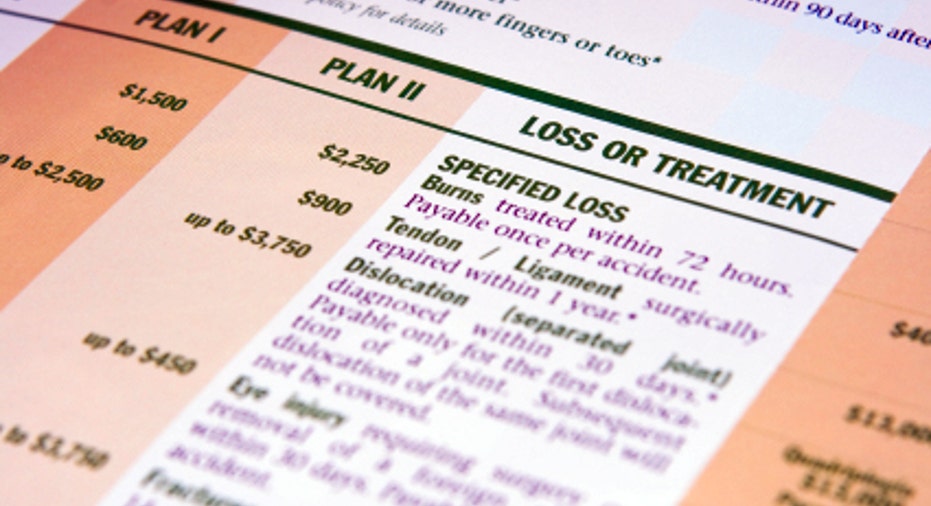Sites Offer Name-Your-Price Health Care Deals

What if you could go to a doctor and know for certain what the bill is going to be, or better still, tell the doctor exactly what you're willing to pay? A few online comparison-shopping sites boast that they offer these routes to better deals on health care.
The ability to name your price and related trends could touch a wide variety of care, from elective operations such as weight loss surgery and Lasik, to routine medical procedures, including blood tests, colonoscopies, MRIs and even knee replacements.
Similar to Priceline
Each of the websites operates with a different business model. Consumers using DealWell, for example, pick their desired medical service and then see a list of providers along with their retail prices and the average discount that DealWell members receive. The site boasts that it offers negotiated discounts of up to 85%.
"Costs in health care aren't transparent, so when we started, we saw a huge opportunity to use the Web to do comparison shopping for a range of health care and wellness services," says Geoffrey Fischer, president and founder of DealWell, a Dallas startup that some have taken to calling a Priceline for health care.
Shoppers can choose to "buy now" at the regular discounted rates, or they can go lower and name their price to see if a provider will accept it. Payment must be made immediately, using a credit or debit card.
DealWell does not accept health insurance as payment but says purchases may qualify for reimbursement from a health savings account or flexible spending account.
Right now, DealWell is available only in the Dallas area, but Fischer says the company plans to move into other markets in the coming year. He expects DealWell and sites like it will become increasingly popular with consumers and providers as more Americans find themselves shouldering a greater share of their health care costs.
"It's absolutely a way to save money because it makes for a more savvy consumer," he says, adding that prices for lab services and routine procedures can vary widely, but should see dramatic reductions as consumers become more knowledgeable about the costs.
Other health care bidding sites
Another site, BidOnHealth.com, takes a similar approach but focuses largely on laboratory and radiology services. Consumers can enjoy big discounts at off-peak lab times and might save even more by naming their own price.
Then there's MediBid, which takes a different spin on the idea of achieving discounts through bidding. The consumer puts out an anonymous query for a medical procedure and then waits for doctors to respond with bids. The service costs $25 per bid, or consumers can pay $59.40 for an annual membership and put out unlimited requests. (The site also charges providers annual membership fees to participate).
"Consumers do save money this way because it's transparent," says MediBid Chief Operating Officer Tess St Clair. "But it's not designed to start a bidding war because doctors can't see what their competition is offering."
Although these sites are pitched as ways to save money, some critics argue that they're really just a new way for providers to market their services and drive sales.
"They have the potential to provide increased price transparency by publishing retail prices for health care services," says David E. Williams, president of the Health Business Group, a consulting firm in Boston. "But sites ... which post a price but then encourage patients to offer less actually harm transparency by turning prices into a game."
Health care 'one-night stands'?
Should you use a health care deals site? Williams' advice is to consider what you need versus what's being offered, because the deals can come bundled with multiple services that you may not need and shouldn't pay for. He also cautions that you shouldn't shortchange your health in a quest for savings.
"Continuity of care is important in health care," he says. "If you get your teeth cleaned at a different dentist every six months, based on the deal, how will anyone be able to notice if something has changed from the last visit?
"The deal sites encourage the health care equivalent of the one-night stand," he continues. "Each party tries to get whatever they can out of the initial interaction and writes off the future."
Fischer scoffs at the sleazy hookup analogy.
"There's nothing about the DealWell model that prevents patients from forming an ongoing relationship with a provider if they have a good experience," he says. "In fact, we hope that our customers do that, and I think most people prefer doing that."
Copyright 2013, Bankrate Inc.



















